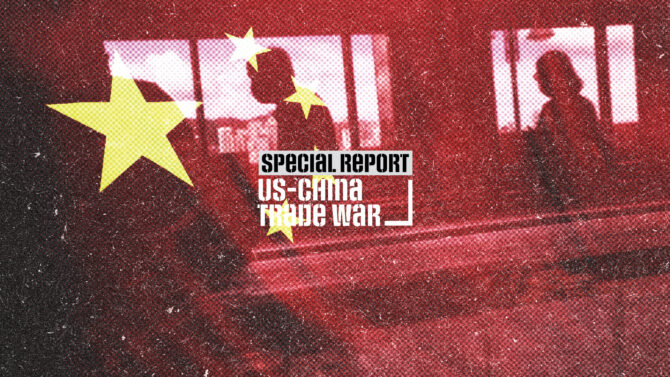iMEdD spoke with Columbia University Political Science Professor Andrew Nathan about Democratic and Republican attitudes toward Beijing and US-China relations in the wake of the US elections.
On July 21, Joe Biden announced his intention to withdraw his candidacy for President of the United States. His decision has stirred the waters of the electoral race and, together with the attempted assassination of Donald Trump a few days earlier (July 13), it has taken over the debate surrounding the upcoming November elections.
One of the loose ends that Biden seems to be leaving behind pertains to Washington’s relationship with Beijing. Under his presidency, new tariffs have been imposed on Chinese products as part of the trade war launched in 2018 by his predecessor, Donald Trump. The two current superpowers are engaged in an increasingly intense economic, and not only, competition, with items such as electric cars, microchips, TikTok, and even undersea telecommunications cables emerging as its primary manifestations.
For Andrew Nathan, Professor of Political Science at Columbia University, the latest developments in the US elections will not change the agenda of the public debate on Washington-Beijing relations. “The overall debate in the US over China policy is whether to “manage the competition” or “win the victory”. However, the election debate tends to simplify these positions down to the question of whether China is a threat and should be opposed,” he told iMEdD, adding that this is a question that both opposing political camps tend to answer in the affirmative.
The November ballot box
Biden’s withdrawal from the race went viral on the Chinese internet, while Beijing’s Foreign Ministry did not comment on the developments. Professor Nathan, an expert on US-China relations, describes Biden’s policy towards China as “selective and purposeful”. On the other side, he sees Trump’s respective choices as “un-strategic”.
But what should we expect if the Republican candidate returns to the White House? “If Trump is elected, I would expect more of his more symbolic, less strategic, broad-brush approach to tariffs, as well as a short-term mindset that would lead him to reduce some tariffs or tech bans in exchange for specific concessions by China, possibly concessions on unrelated issues or even those that are merely symbolic and give Trump face,” Nathan tells iMEdD.
US-China: The trade war from the Chinese point of view

Western media often portrays the trade conflict between the United States and China from an American perspective. However, how are these same events depicted in Beijing? Dr. Ian Chong, Associate Professor of Political Science at the National University of Singapore, speaks to iMEdD.
The next stage of the conflict
But are there substantive differences between the Democratic and Republican positions on the relationship between the world’s two most powerful economies? “Often when one looks at specific policies the two sides converge,” explains the Columbia University Professor, adding that “leaving aside Trump, who as I said is not a strategic thinker, most politicians in both parties think we need to resist Chinese low-price exports, protect intellectual property, strengthen our deterrent posture around Taiwan, and so forth.”
The area where the differences between the two parties seem to be clearer, concerns the next stage of the ongoing trade war. “The difference with Republicans is that most Dems do not think it is possible to “win victory” over China, that China is not going to surrender or disappear, hence we have to manage a long-term competitive relationship,” Nathan notes.
As for the future of the US-China rivalry, he believes it is not clear whether a winner will emerge. “There may be no secure lead position as competition may continue forever.” Therefore, we may have to get used to the idea of a bipolar international system of constant competition. “My best guess is that both economies will have problems, yet they will be leading economies in the 21st century, and that one side will be stronger in some areas of enterprise, and the other side will be stronger in other areas.”
Read all articles and analyses of the Special Report: “US-China Trade War” here.
